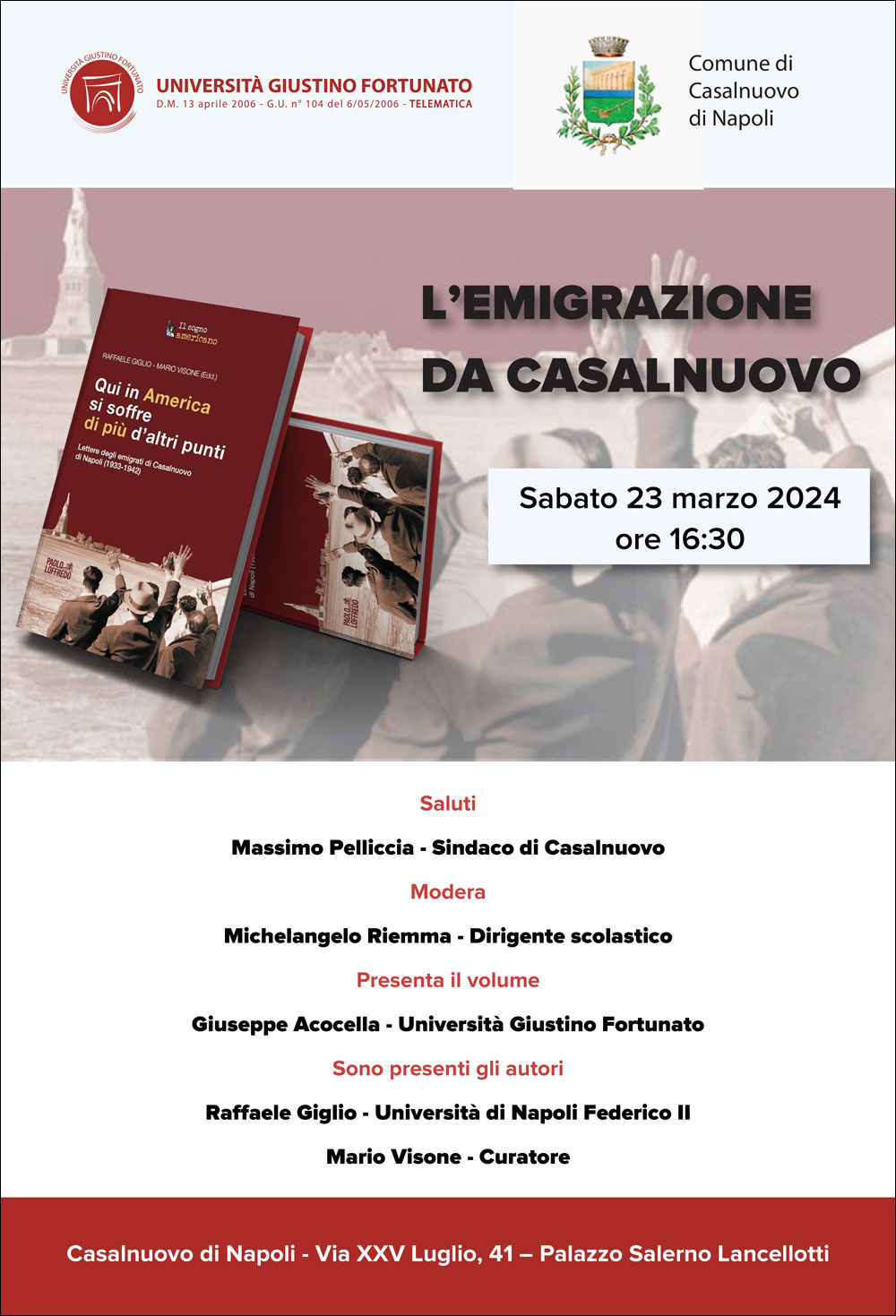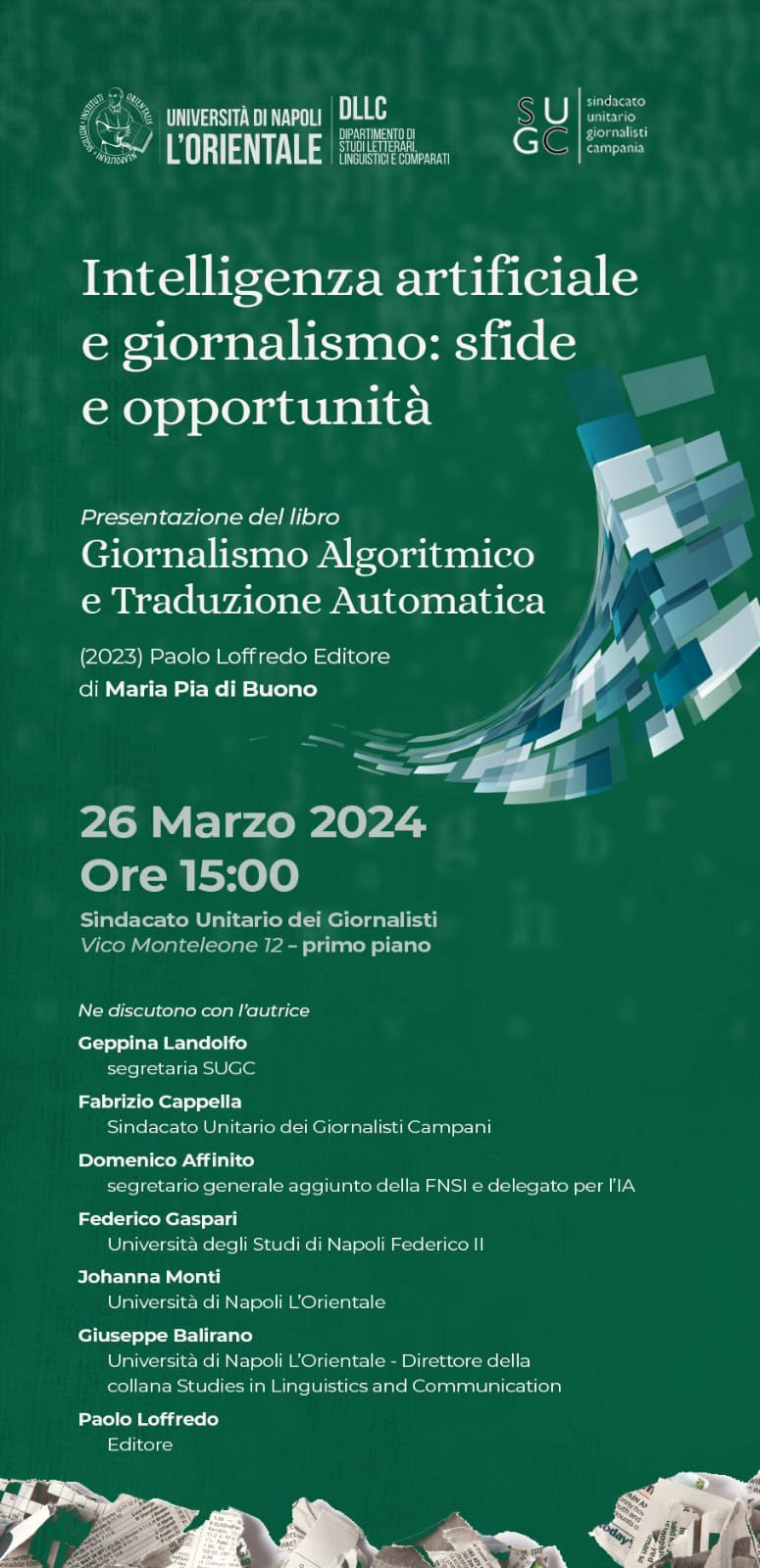 Paolo Loffredo, sixth generation of a large family of publishers and booksellers engaged in the production and distribution of books since the late nineteenth century, creates in 2012 the new editorial company Paolo Loffredo Editore. The historical site was until the '80s in the heart of the historic centre of Naples in Via San Biagio dei Librai, lower Decumano and also known as the SpaccaNapoli.
Paolo Loffredo, sixth generation of a large family of publishers and booksellers engaged in the production and distribution of books since the late nineteenth century, creates in 2012 the new editorial company Paolo Loffredo Editore. The historical site was until the '80s in the heart of the historic centre of Naples in Via San Biagio dei Librai, lower Decumano and also known as the SpaccaNapoli.
At the beginning of the twentieth century, Giuseppe Loffredo decided to add book selling to the book production, which definitively imposed itself after World War II with the publication of manuals for the University and for the School that succeeded in establishing themselves soon throughout Italy.
LAST EVENT
"L'emigrazione da Casalnuovo"
23 Marzo 2024 - Palazzo Salerno Lancellotti Ateneo, via XXV Luglio, 41 - Casalnuovo (NA) - ore 16,30

--------------------------------------------------------------------
"Intelligenza artificiale e giornalismo: sfide e opportunità"
26 Marzo 2024 - Sindacato Unitario dei Giornalisti - vico Monteleone, 12 - primo Piano - Napoli - ore 15,00

Processi e competenza di lettura: dalla grammatica alla linguistica testuale nella scuola
ISSN :
Language: Italian
Publisher: Paolo Loffredo Iniziative Editoriali Srl

Description
Processi e competenza di lettura: dalla grammatica alla linguistica testuale nella scuola
The Italian teaching system at school was marked by events that influenced its history: in addition to planned changes and implemented through the laws and regulations that have repeatedly reconsidered the curriculum and the objectives of the discipline and have affected training and on the recruitment of teachers, there have been other changes that the school has favored and adapted to. One of these has been the continuous evolution, in form and content, of Italian textbooks. Today the literature manuals and grammars of high schools share with those of other disciplines the destiny of progressive dematerialization, which seems to have set in motion not completely definable in the didactic and cognitive effects.
In the past there were moments marked by changes of mind and restructuring of the textbook, coinciding with great theoretical reflections. In the last ten years, digital communication has multiplied the opportunities for writing; at the same time, however, it has undermined stability, authoritativeness and the same physical preface of the text of homo tipographicus, ie its constituent characteristics. Precisely in this circumstance the teaching of the understanding of the text traditionally understood must be an objective that the scholastic institution assumes with greater commitment and coherence, to guarantee students the possibility to orient themselves and to operate, in the future, in the adult world. The need is indifferibile. The reading of the reading skills of the 15-year-old Italians operated by the OECD shows a chronic territorial imbalance to the detriment of the South. The objective of finding solutions to fill this disparity has been pursued over the years by the Campania Region according to different operating methods. On this happy occasion, the appropriate initiative of local institutions has consisted in urging the Universities to design and implement adequately funded teaching interventions: a detailed report is given here of those designed and coordinated at the Department of Humanities of "Federico II". This purpose of overall interest has accompanied the basic design idea and has in some way guided the creation of the teaching practices used. In a nutshell, we aimed at the goal of creating and planning activities that would eliminate those invisible borders within the school curriculum that cause discontinuity in training processes and excessive provisional effects: we worked, in short, to make a small contribution to train people who in the future can perceive how creative is the irony of those who have ranks among the rules to write well a phrase like "Needless to tell you how cloying the preteritions" (U. Eco).













